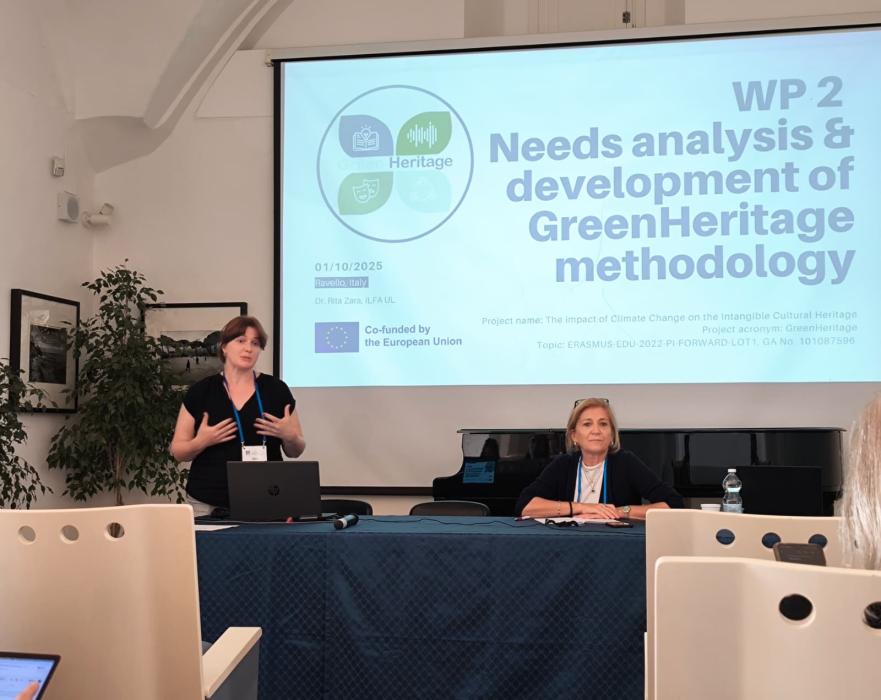"Green Heritage" team reflects on project achievements

Bringing together researchers, cultural heritage experts, policymakers, and community representatives, the final meeting and closing conference of the “Green Heritage” project took place in Italy at the beginning of October.
On October 1st, representatives of partner organizations from Italy, Greece, Spain, Belgium, and Latvia gathered in person in the town of Ravello to reflect on the progress and outcomes of the project. During the meeting, Dr. Rita Zara, the national coordinator of the “Green Heritage” project in Latvia and senior researcher at the Institute of Literature, Folklore and Art (ILFA) of the University of Latvia, presented ILFA’s contributions to the project. These included the development of the project’s methodology, mapping climate change impacts on intangible cultural heritage practices, analysing existing legal frameworks, identifying adaptation strategies, organizing roundtable discussions, and drafting the national policy report.
On October 3rd, the project’s final conference was held in Rome and was also accessible to a wider audience via live stream. The event focused on the “Green Heritage” methodology and educational approach, the experiences of the communities involved, and the protection of intangible heritage in the context of climate change. The concluding discussions highlighted potential future research directions, emphasizing the importance of synergies between the natural sciences and the humanities, interdisciplinary cooperation, and the consideration of climate justice within heritage-related adaptation strategies.
The conference featured contributions from Rita Zara and ILFA researcher Kitija Balcare, who shared insights from the mapping of climate change impacts on intangible cultural heritage practices across Europe.
All project outcomes are available on the official project website, including policy briefs in both English and the respective national languages, an e-learning platform, an interactive map of mapped practices, and additional materials HERE.
The events marked the conclusion of the international ERASMUS+ project Green Heritage: The Impact of Climate Change on the Intangible Cultural Heritage, which unites partners and researchers from Latvia, Greece, Italy, Spain, and Belgium. The project aims to raise awareness of the direct and indirect impacts of climate change on intangible cultural heritage and its sustainability. Latvia is represented in the project by the Institute of Literature, Folklore and Art of the University of Latvia.